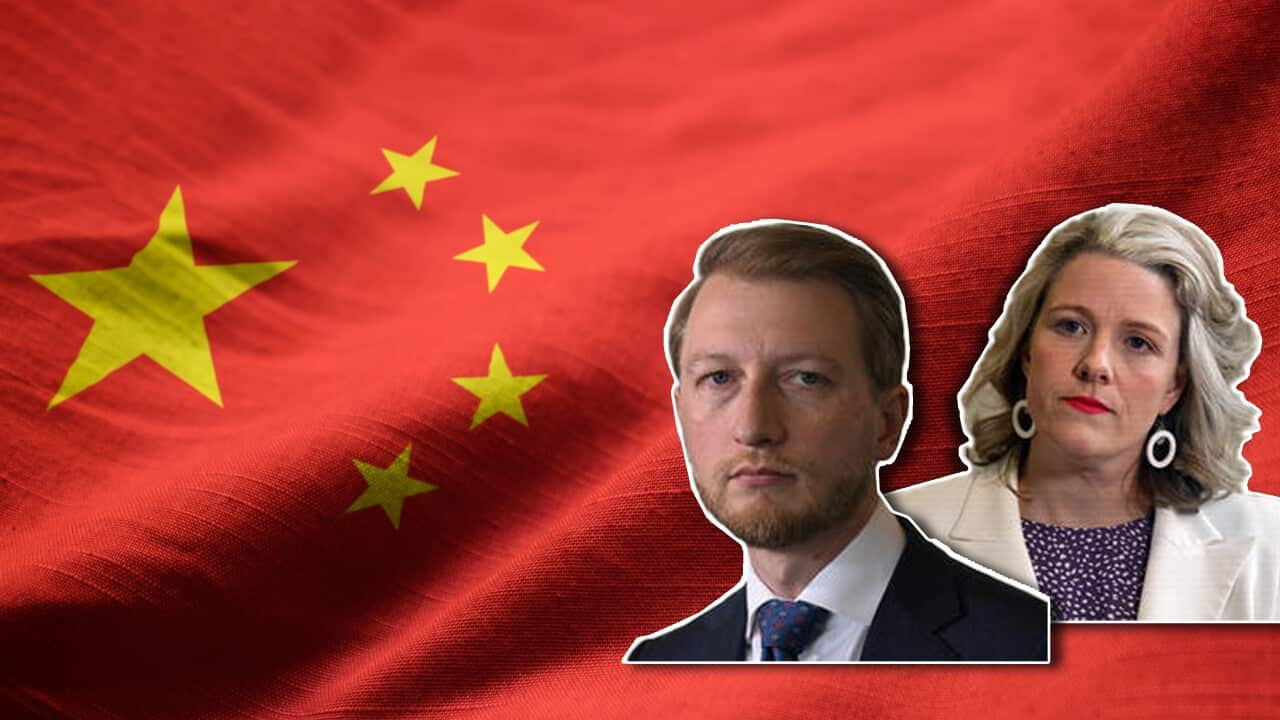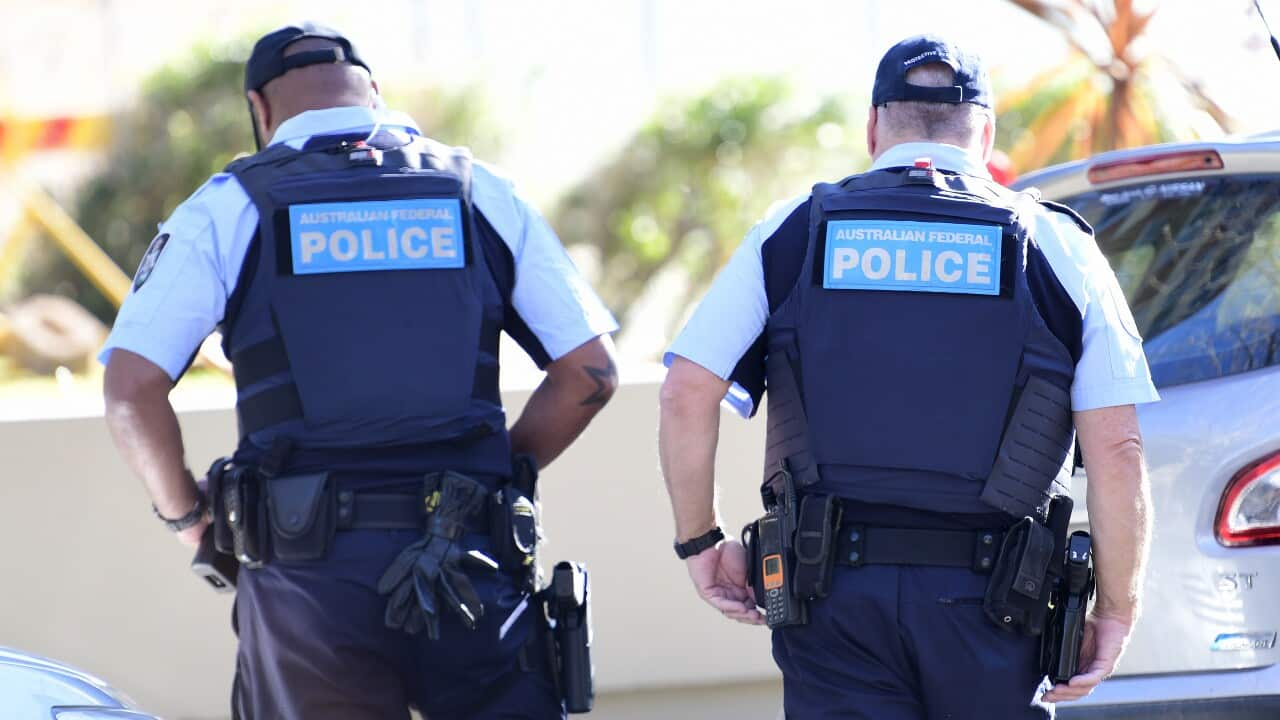KEY POINTS:
- Meta says China-based misinformation campaigns are 'evolving' and accelerating.
- TikTok says it would refuse to hand over personal data if Chinese authorities demanded that.
- Chinese app WeChat has refused to appear before a Senate inquiry on foreign interference via social media.
Australian TikTok executives say they will break China's national security laws if authorities demand personal data stored on the app, but declined to explain the legal basis for their claim.
During a fiery parliamentary inquiry into foreign interference on social media on Tuesday, the executives were accused of deliberately misleading Australians over the app’s links to the Chinese Communist Party (CCP) amid fears their personal data could be handed over.
Liberal senator and committee chair James Paterson also took aim at another , for refusing to front the inquiry despite having "important questions to answer" over foreign interference and surveillance on the platform.
Earlier, the inquiry was warned China-based online misinformation campaigns are "evolving" and have accelerated this year in particular.
Here's what you need to know.

Chinese national security laws compel companies to hand data to authorities. Source: AAP
'So you would break Chinese law?'
Under national security laws introduced by the CCP in 2017, companies are required to hand authorities any personal data relating to national security.
TikTok Public Policy Manager Ella Woods-Joyce accepted that the law applies to the company's China-based employees, but said that was "no more and no less [to TikTok] than any business" operating in the country.

TikTok's Ella Woods-Joyce says the company would refuse to hand over personal data to the Chinese Communist Party.
“So your evidence is that you would break Chinese law?” Paterson asked.
Woods-Joyce did not answer directly, but denied that Chinese authorities had made such a request. “And we will not provide it if we were asked,” she said.
Given the Chinese law requires also requires secrecy, Paterson asked "how on earth" TikTok would even know that data had been handed over.
Will Farrell, from TikTok's data security team, said employees required "multiple approvals" to access sensitive data, and a foreign employee requesting an Australian's data would require an additional review process.
"We also have a data access monitoring team, part of [our] global security team based in the US, that monitors all the access and looks for any kind of unusual or unauthorised access," he said.
But Farrell did not know how many times Australian users' data had been accessed by China-based employees.
Paterson said it was impossible that Farrell could not provide a number if TikTok methodically logged every time Australian user data was accessed.
"Either you can’t tell me because you don’t know, or you do know and you’re refusing to tell me," he said.
TikTok executive 'stands by' op-ed that denied spying
Lee Hunter, TikTok's general manager in Australia, was also in Paterson's sights.
In October, American outlet Forbes reported that employees of TikTok's parent company, ByteDance, had accessed personal data on the app in an attempt to track down the sources of journalists covering the company.
In an op-ed in the Daily Telegraph that month, Hunter flatly denied that had occurred, saying it was not possible because of the way TikTok stored data.
Two months later, ByteDance conceded multiple employees had inappropriately accessed data for that purpose.

TikTok admitted 'rogue employees' had used personal data in an attempt to track down journalists' sources. Source: AAP / Kiichiro Sato
“You've made a false claim on the public record about your own app. Why should we rely on anything you say to the committee today, when we can't rely on what you've previously said?”
Hunter blamed the breaches on a number of “rogue employees” but said he stood by the “sentiments” of his piece. He denied the incident constituted spying.
"This is not what the company stands for. These employees were seeking to isolate the source of leaked confidential company information. They were unsuccessful in that effort," he said.
"But we're aware that, with this serious misconduct of these employees, serious changes need to happen."

Senator James Paterson watches as Meta appears to the inquiry via videolink. Source: AAP / Mick Tsikas
Meta issues warning on 'evolving' Chinese foreign interference
Earlier in the inquiry, Meta - the owner and operator of Facebook, Instagram, WhatsApp and Threads - warned that Chinese-based misinformation actors are increasingly seeking to recruit journalists and spreading misinformation to Uyghurs across the globe.
Meta's head of public policy in Australia, Josh Machin, revealed half of the Chinese-based "coordinated inauthentic behaviour" (CIB) networks disrupted since 2017 had been identified this year alone.
“We are seeing an evolution in the tactics out of particularly networks and operations originating [in] China," he said.
Coordinated inauthentic behaviour is the coordinated use of potentially thousands of social media accounts, real and fake, to promote misinformation.
Meta has identified more than 200 CIB operations on its platforms globally since 2017. The operations originated from 68 countries and were spread in at least 42 languages.
Machin said one politically motivated campaign had spread "everywhere from Taiwan to sub-Saharan Africa" but
He warned the developing strategies also included attempts to "co-opt" influential organisations, such as non-profits, public relations firms, and even journalists.
"Although they are fairly new tactics to China-originating operations, we've seen them in other CIB networks for quite some period of time," he said.

Meta's Josh Machin warns China-based misinformation campaigns are accelerating.
diaspora communities in Australia are particular targets of foreign interference, both online and in-person.
Machin said while Australians were not immune to global campaigns, Meta had removed four operations specifically targeting the country.
He revealed two – which originated in Kosovo and India, respectively – used political content related to the 2019 federal election to lure audiences.
But he said they were apparently motivated by money rather than political ideology.
"[They were] trying to get people to follow through links to websites that were ad farms essentially," he said.
Is it happening on Threads?
Meta launched Threads, , last week and the app already boasts over 100 million users.
Machin said the standards applying to Meta's other apps - including Facebook and Instagram - already applied to Threads, insisting misinformation would be removed.
He said Meta was working "very quickly" to add protective measures on the new app, flagging explicit labels for Russian-state outlet RT and Chinese-state outlet Xinhua.
But he would not offer a timeframe for when Meta would have those labels in place.
"Areas such as labels for state-affiliated media partnerships [and] fact-checkers are areas where we see a lot of value. It's our aspiration to build that out fairly quickly," he said.
"But of course, it has only been a couple of days [since the app's launch]."
Paterson, the Opposition spokesperson for home affairs, said he did "not necessarily" believe state-based propaganda outfits should be removed as there was often value in being aware of their output.
"I just wouldn't want us to be misled that these are genuinely free and independent journalistic outlets. They are not. They're propaganda outfits, and they should be labelled as such," he said.
WeChat refuses to appear before committee
Paterson took aim at Chinese messaging app WeChat, and its parent company Tencent, for refusing to front the inquiry despite having "important questions to answer" over alleged surveillence and foreign interference on the platform.
Paterson said WeChat, which has no company representatives in Australia, was showing it did "not feel the need to even pretend to participate in the inquiries of parliament".
"It is untenable for a company with so much influence on our diaspora communities to be able to operate with impunity, and demonstrate a disregard for our system of government without consequences," he told the inquiry.
"If WeChat believes [the committee's] recommendations are unfavourable to their interests, then they will have no one to blame but themselves."
The prospect of has been floated during the inquiry, which heard the app was even less transparent than TikTok, where a significant amount of content is English-language.
TikTok, a privately-owned Chinese entity, has denied censoring content on behalf of the Chinese government.
WeChat is used by many Australian politicians to engage with Chinese-speaking voters, though concerns have been raised over Tencent's willingness to refuse Chinese Communist Party demands for censorship.
Former prime minister , which had 70,000 followers, for months as tensions between Canberra and Beijing deepened.
Morrison's office did not receive responses to repeated attempts to contact Tencent over the incident ahead of the 2022 federal election.
The inquiry heard the incident was "textbook foreign interference", and an indication that decisions made by Tencent were politically-influenced.












